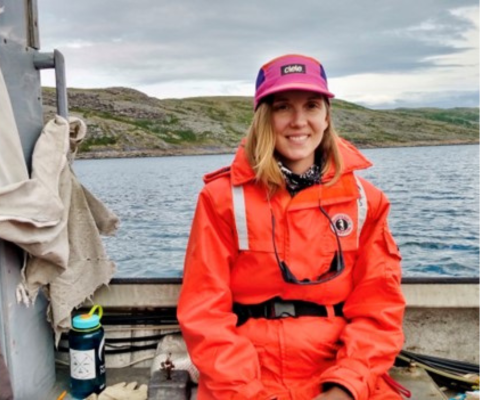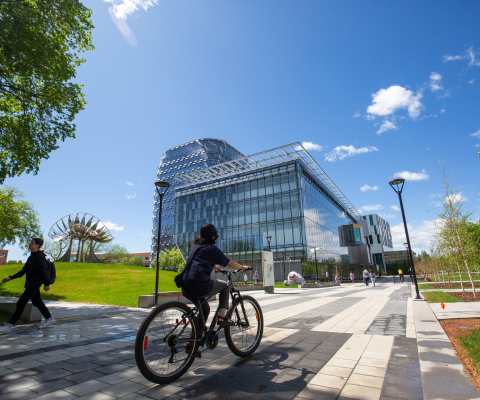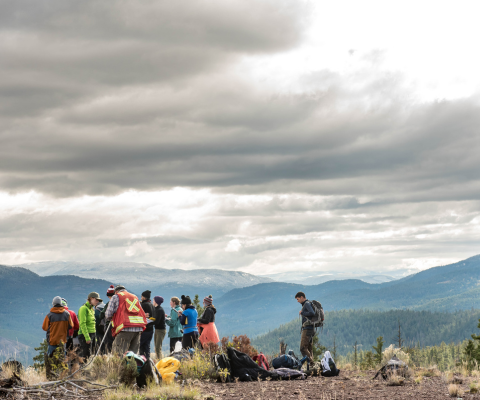Co-developing research on Arctic char with Inuit Knowledge

Climate change in the Arctic is up to four times more rapid than anywhere else on the planet.
That’s why Dr. Marianne Falardeau, a postdoctoral researcher at the Université Laval, looks to co-develop solutions to ensure sustainable and resilient Arctic char populations with Inuit Knowledge.
A 2023 winner of the L’Oréal Canada For Women in Science Research Excellence Fellowship, Dr. Falardeau is using a transdisciplinary and collaborative approach to shed light on the links between marine ecosystems, fisheries, food security and Inuit health in the context of climate change.
Increasing demand on Arctic marine fisheries
Nearly 35% of the world’s fish stocks are overexploited, and interest in expanding and developing new fisheries in the Arctic is growing. Arctic char are the most harvested aquatic species in northern Canada—and while they’re nutritional powerhouses in general, Arctic char are particularly important to the Inuit of Canada, due to their high nutritional and socio-cultural value.
Arctic char are particularly affected by climate change as an anadromous species—fish which migrate between fresh water and the ocean to spawn and eat. They’re impacted by changes in both freshwater and marine systems. Changing conditions in the Arctic seas, where the char get their key nutrients, have for instance altered ocean species present during their short, but critical, feeding time. This may affect Arctic char, and in turn the health and well-being of Inuit communities.
Looking ahead to a sustainable future
With support from sources like the L’Oréal Canada For Women in Science Research Excellence Fellowship, Dr. Falardeau is studying how climate change is affecting Arctic char (and therefore the food security and health of Inuit communities) and how taking a transdisciplinary approach to the situation might help better understand and respond to it. By encouraging collaboration between Inuit knowledge keepers, managers and specialists, Dr. Falardeau hopes to help co-develop sustainable solutions for decision-making pertaining to food security, health and climate change adaptation in Inuit Nunangat.
About Marianne Falardeau
Dr. Falardeau completed her bachelor’s and master’s degrees in biology at the Université Laval before doing her doctorate in natural resource sciences at McGill University. Now a postdoctoral researcher at Université Laval’s Institute of Integrative Biology and Systems, she has been recognized several times for her research, including receiving doctoral and postdoctoral fellowships from the Weston Family Foundation, and being nominated as one of Canada’s 30 Sustainability Leaders under 30 in 2016 and as a Clean 50 Emerging Leader in 2018. Marianne is an explorer—a world-wide traveller who has ventured to both poles and all continents—and loves mountaineering, trail running, scuba diving and yoga.
Watch Dr. Marianne Falardeau explain her research here.
About Universities Canada
Universities Canada is the voice of Canada’s universities at home and abroad, advancing higher education, research and innovation for the benefit of all Canadians.
Media contact:
Lisa Wallace
Assistant Director, Communications
Universities Canada
[email protected]
Tagged: Research and innovation
Related news
-

Urgent action for our publicly-funded universities critical to Canada’s economic stability and growth
-

Outstanding discoveries by Black researchers in Canada
-

Universities are advancing technology through international partnerships
-

Global university partnerships are finding solutions to the climate crisis
